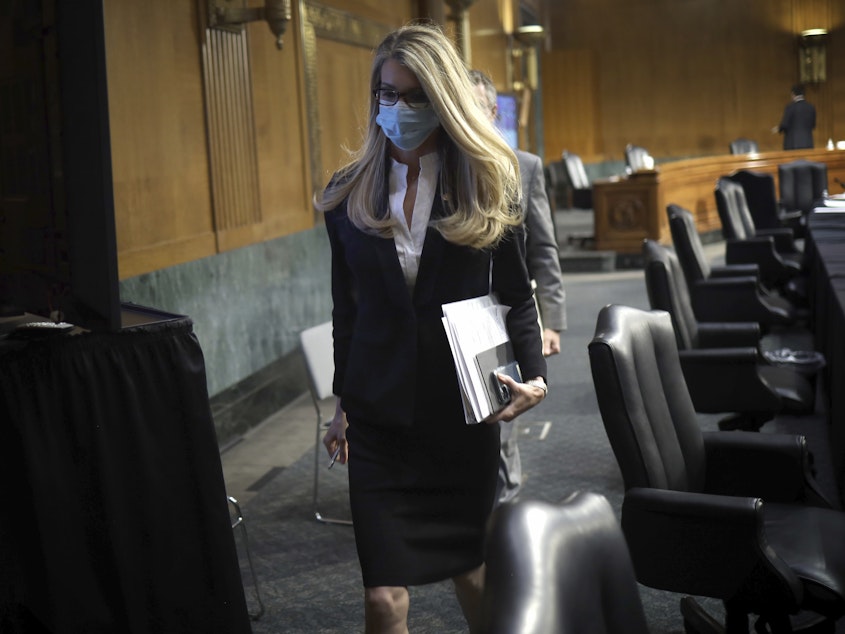Justice Department Closes Investigations Of 3 Senators; Burr Inquiry Continues

The Justice Department has closed investigations into stock sales made by three senators shortly before financial markets tanked because of the coronavirus pandemic, according to an individual familiar with the matter.
Sens. Dianne Feinstein, D-Calif.; Kelly Loeffler, R-Ga.; and James Inhofe, R-Okla., were notified of the decision on Tuesday. The Justice Department's insider-trading investigation into another senator, North Carolina Republican Richard Burr, remains open, the individual said.
The person asked not to be identified discussing the politically sensitive cases, which were first reported by The Wall Street Journal. The Justice Department declined to comment.
All four lawmakers came under scrutiny after making stock trades worth hundreds of thousands of dollars in late January and early February — before markets collapsed as the public became fully aware of the scale of the threat from the coronavirus.
The senators had received briefings on the virus before they made the transactions, which fueled questions about whether they were trading on non-public information.
Sponsored
All the senators involved have denied any wrongdoing.
Feinstein, Loeffler and Inhofe have said others, including family members or investment advisers, made the trades on their behalf.
A spokesperson for Loeffler called the news a "clear exoneration" that "affirms what Senator Loeffler has said all along—she did nothing wrong."
There was no immediate comment from Feinstein or Inhofe.
Senator Burr
Sponsored
Burr's trades, which were worth up to $1.7 million, have drawn the most scrutiny, and he remains under investigation.
The FBI executed a search warrant for his cellphone earlier this month — a major step in the probe. It meant investigators were able to show a federal judge probable cause that a crime had been committed and that there was likely evidence of that crime on Burr's phone.
The decision to seek a warrant was approved at the highest levels of the Justice Department given the sensitivities involved in an investigation into a sitting senator.
Burr has denied any wrongdoing and says he is cooperating with the investigation.
Burr has said he based his trading decisions off public reports about the effects of the coronavirus inside China, where it originated, and not information to which he was privy because of his position.
Sponsored
Still, he announced earlier this month he would step aside as chairman of the Senate Intelligence Committee until the investigation concludes. [Copyright 2020 NPR]



